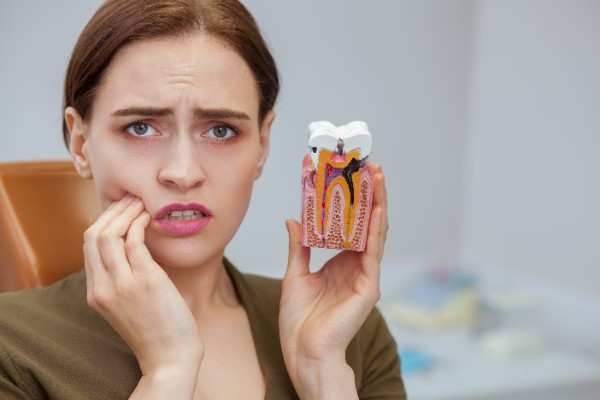Introduction
A radiant smile is often seen as a symbol of confidence, health, and vitality. For many, achieving whiter teeth is a top priority, yet the journey is not always without discomfort. One of the biggest concerns surrounding whitening treatments is tooth sensitivity, which can transform the excitement of achieving a brighter smile into a painful experience. The positive aspect is that, when approached correctly, achieving a brighter smile can be done without experiencing sensitivity. This blog explores causes, preventive measures, safe treatment options, and lifestyle adjustments that ensure lasting results.
Understanding Tooth Sensitivity

Tooth sensitivity occurs when the protective enamel wears down or gums recede, exposing the underlying dentin. This layer contains microscopic tubules that lead directly to the tooth’s nerve, making it vulnerable to sensations triggered by hot, cold, sweet, or acidic foods. When whitening agents penetrate enamel or irritate exposed dentin, sensitivity often follows.
Some individuals naturally have thinner enamel, while others may develop sensitivity from lifestyle habits such as grinding teeth or frequent acidic food consumption. Understanding these underlying factors is the first step in managing and preventing discomfort during whitening treatments.
Common Causes of Sensitivity During Whitening
Tooth sensitivity during whitening procedures is not uncommon. The main triggers include:
- Overuse of Whitening Products: Frequent or prolonged use can erode enamel and irritate nerves.
- High Concentration of Bleaching Agents: Strong chemicals penetrate too deeply into enamel.
- Pre-Existing Dental Problems: Cavities, cracked teeth, or gum recession heighten sensitivity.
- Improper Application: At-home treatments applied without professional supervision can cause uneven results and discomfort.
These factors highlight why professional assessment is crucial before pursuing any whitening procedure.
Safer Whitening Options
For those looking for effective yet gentle methods, there are safer alternatives to aggressive bleaching.
1. Professional Treatments
Dentist-supervised treatments provide tailored care. A Dentist in Leicester can use advanced techniques and safe concentrations to minimise risks. These treatments may also include desensitising gels and customised trays for comfort.
2. Gentle At-Home Kits
Dentists may recommend lower-concentration, at-home kits designed for gradual whitening. These are generally safer than over-the-counter products.
3. Whitening Toothpastes
Specialised pastes can lighten stains over time using mild abrasives. While the results are not as dramatic, they are far less likely to cause sensitivity.
| Option | Pros | Cons |
| Professional Treatments | Fast results, customised care | Higher cost |
| Dentist-Approved Kits | Convenient, gradual improvement | Slower than professional methods |
| Whitening Toothpastes | Affordable, easy to use | Limited effectiveness |
These alternatives balance effectiveness with comfort, making them appealing choices for those wary of sensitivity.
Preventing Sensitivity Before Whitening
Taking precautionary steps before whitening can significantly reduce the risk of discomfort.
- Book a Dental Check-Up: A Dentist in Leicester can detect cavities, enamel wear, or gum issues before treatment.
- Use Desensitising Toothpaste: Preparing teeth a few weeks in advance strengthens enamel and reduces nerve exposure.
- Strengthen with Fluoride: Fluoride rinses or gels create a protective barrier.
- Avoid Certain Foods: Limit acidic or sugary foods before treatment to prevent enamel weakening.
Preparation is key in ensuring a smoother and more comfortable whitening journey.
Managing Sensitivity During and After Whitening
Even with precautions, some sensitivity may still occur. Thankfully, it can be managed effectively with small adjustments:
- Take breaks between whitening sessions to allow enamel to recover.
- Apply fluoride gels or varnishes for extra protection.
- Switch to a softer toothbrush and non-abrasive toothpaste.
- Avoid extreme hot or cold foods and drinks for a few days post-treatment.
These strategies not only manage sensitivity but also help preserve whitening results.
Natural Alternatives for Gentle Whitening
For those who prefer a softer approach, natural options may provide gradual results with minimal risk.
- Baking Soda-Based Toothpaste: Acts as a mild abrasive to polish away surface stains.
- Oil Pulling: Swishing coconut oil in the mouth may reduce bacteria and surface discolouration.
- Crunchy Fruits and Vegetables: Apples, celery, and carrots act as natural stain removers while stimulating saliva production.
- Diet Adjustments: Reducing stain-causing foods such as coffee and red wine helps maintain a naturally brighter smile.
While these methods are slower, they are suitable for individuals concerned about sensitivity.
Video link : Affordable Teeth Whitening in Leicester – Check Prices & Options!
Maintaining Whitening Results Through Diet and Habits
Long-term results depend not only on treatments but also on daily habits. Mindful dietary choices and oral hygiene practices can prevent staining and prolong the effects of Teeth whitening Leicester.
Effective strategies include:
- Limiting coffee, tea, red wine, and acidic foods.
- Consuming crisp fruits and vegetables that help naturally clean and polish your teeth.
- Rinsing with water after meals to remove residue.
- Avoiding smoking and tobacco products.
- Consistently brushing with fluoride toothpaste and flossing to help prevent plaque buildup.
By following these habits, patients maintain a whiter smile and reduce the need for frequent whitening sessions.
Lifestyle Habits for Maintaining a Brighter Smile

After reaching the preferred level of whiteness, it’s important to keep it consistent. Daily habits make a significant difference:
- Brush twice daily with fluoride toothpaste.
- Floss regularly to remove plaque build-up.
- Quit smoking, as tobacco is a major cause of staining.
- Rinse with water after meals to wash away stain-causing particles.
By incorporating these habits, results from Teeth whitening Leicester can last longer, reducing the need for repeated treatments.
Conclusion
A sparkling smile does not have to come with the discomfort of sensitivity. By understanding the causes, exploring safer options, and adopting preventive measures, anyone can enjoy a brighter, healthier smile with confidence. Whether you opt for professional treatments or natural alternatives, the key lies in balance, care, and consistency. For long-lasting results and personalised advice, consulting a dental professional is always the best step forward. With expert support and mindful lifestyle habits, achieving a radiant smile without sensitivity is entirely possible, and easily maintained in Leicester.












